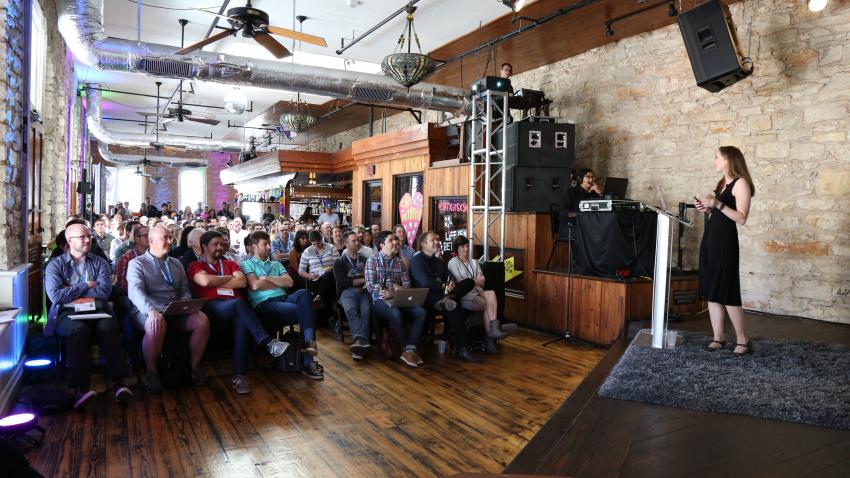Dr. Moore Presents at SXSW on Technology Assistance for Attention

On March 13, Dr. Katherine Moore, assistant professor of Psychology and head of the Attention, Memory and Cognition lab, presented at the South by Southwest Music, Film, and Interactive conference (SXSW) in Austin, Texas.
Dr. Moore discussed her ongoing research on attention, perception, and memory, and how new technology might one day be able to assist the extension of the brain for these limitations. She theorized that machine learning of smartphones, meaning the adaptation of these devices to interpret your personality and environment, could be used to reduce distractions. An example, she said, would be if your smart phone interpreted your environment—such as knowing you are on the phone or in the middle of a meeting—and repressed notifications until that activity was over so your focus would not be disrupted.
Based on Dr. Moore’s research, she believes machine learning is not a far reach when it comes to human assistance. However, unlike the apps and websites that have been shown to have little impact on human attention and memory, Dr. Moore said the technology of the future will not be a crutch.
“Repeated acts of relying on a device will have a negative impact,” Moore said, citing research that has found reliance on GPS can hurt natural navigation skills. “We need to make sure that technology isn’t doing that to our brains. We need to keep our attention sharp.”


